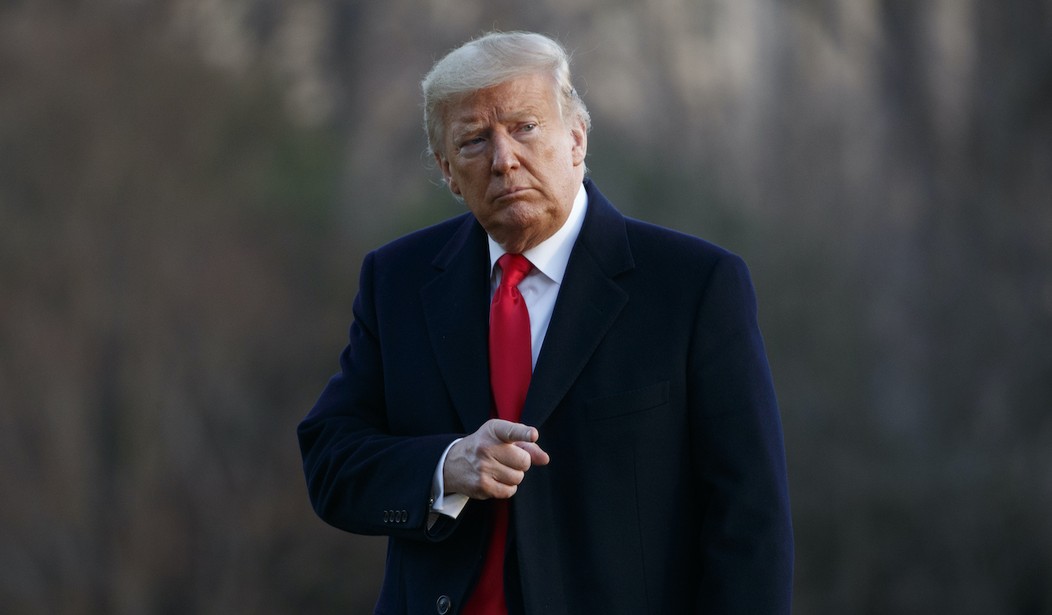True to form, President Donald Trump signaled confidence in his remarks addressing the threat of the coronavirus. He was correct when he mentioned that the average American is not at risk of imminent harm from the virus. And he correctly pointed out that far more people die annually from the common flu than have been killed thus far by the coronavirus. In urging calm, Trump also signaled that he views the virus as a potential catalyst for a strategic restructuring of America's trade relationship with China, and returning manufacturing jobs to the U.S.
It has been a foregone conclusion among many economic thinkers that the cheaper manufacturing alternatives offered by China and other low-wage foreign countries made the prospects of returning manufacturing to U.S. soil all but impossible. On the basis of these assumptions, a burgeoning international trade and global supply chain system has evolved such that even goods and services that are nominally produced in America contain components that are sourced from far-off locales where the labor is cheap and environmental controls -- including sewage, waste management infrastructure and basic sanitation -- are severely lacking. These third-world environments, including much of China, are petri dishes for viruses that could become globally destabilizing public health threats.
But the coronavirus, in exposing the fragility of the massive global supply network, also serves as a catalyst for a central agenda item of the Trump administration: to return to domestic manufacturing as a middle-class jobs strategy. Trump's Commerce Secretary Wilbur Ross hinted as much last January during a televised interview with Fox Business Network's Maria Bartiromo, when he said that the coronavirus outbreak in China will help "accelerate the return of jobs to North America." He prefaced the remarks by saying: "Well, first of all, every American's heart has to go out to the victims of the coronavirus. So, I don't want to talk about a victory lap over a very unfortunate, very malignant disease. But the fact is, it does give businesses yet another thing to consider when they go through their review of their supply chain."
Recommended
Almost a month later, behemoth tech giants Microsoft and Apple announced that production delays in components produced in China would stall delivery of some of their most coveted products -- handheld mobile devices and personal computers -- indefinitely. The fact that companies of this size could face bottlenecks of such magnitude shocked many on Wall Street and caused one of the greatest single-day sell-offs the stock market has witnessed in over a decade.
But for Trump, this weakness grants a rare opportunity to advocate for stronger immigration and labor policies that will drive a resurgence in domestic production of critical supply chain elements. A more robust manufacturing sector not only empowers American workers but also makes American companies more resilient to geopolitical shocks and natural disasters. The coronavirus represents a bit of both.
In pressing ahead with his "America First" trade and immigration agenda, Trump has defied the critics and proven to be more than resilient. He has, in the words of popular author Nassim Nicholas Taleb, proven to be an "antifragile" president. That is to say, not only has he withstood shocks -- whether of a personal or professional nature -- but seems to gain strength from them. As Taleb writes in his 2012 book, "Antifragile: Things That Gain From Disorder": "Some things benefit from shocks; they thrive and grow when exposed to volatility, randomness, disorder, and stressors and love adventure, risk, and uncertainty. Yet, in spite of the ubiquity of the phenomenon, there is no word for the exact opposite of fragile. Let us call it antifragile. Antifragility is beyond resilience or robustness. The resilient resists shocks and stays the same; the antifragile gets better."
While Trump's agenda seems to gain steam from disorder, this does not mean that threats are not present. If the market contagion caused by the coronavirus exposes underlying weaknesses in the global economy -- signs of slowing growth in both the U.S. and Europe exist -- then it could catalyze an economic downturn that could prove politically risky to Trump. However, if the Trump administration employs a strategy of augmenting the global supply chain by incentivizing domestic manufacturing, it could also mean great opportunities for future domestic growth and prosperity.
To find out more about Armstrong Williams and read features by other Creators Syndicate writers and cartoonists, visit the Creators Syndicate website at www.creators.com.
























Join the conversation as a VIP Member